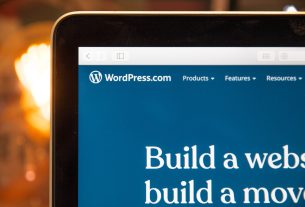
Is WordPress Good For Enterprises? An In-Depth Analysis
Introduction
Choosing the right content management system (CMS) is vital for big companies. It’s what makes their websites run smoothly and stand out. With so many options out there, deciding which one to use can feel overwhelming.
WordPress has come a long way from being a simple blogging tool. Today, it powers some of the biggest brands on the web. But can it handle the needs of large enterprises? That’s what we’ll explore. We’ll look at its scalability, security, customization options, and overall performance. This will help you see if WordPress can work for your organization.
Understanding WordPress as a Content Management System
What is WordPress?
WordPress is an open-source platform that lets users build and manage websites easily. It’s simple enough for beginners and powerful enough for developers. Its core features include a user-friendly editor, themes for design, and plugins for extra functions.
As of 2023, over 40% of all websites online run on WordPress. That’s a huge chunk of the web, showing how flexible and popular this platform has become. Many bloggers, small shops, and even big companies trust WordPress daily.
How WordPress Differs from Enterprise CMS Platforms
Unlike enterprise platforms like Sitecore or Adobe Experience Manager, WordPress is more open and customizable. Big brands love its flexibility but have to weigh this against its limitations.
While WordPress shines for small to medium sites, it can sometimes struggle with very large, complex websites. For companies that need strict control over content workflows or advanced security, bigger systems might be better. But for many types of enterprise websites—like corporate blogs, marketing sites, or e-commerce—WordPress can work well.
Key Benefits of Using WordPress for Enterprises
Flexibility and Customization
The biggest strength of WordPress is how flexible it is. Thousands of plugins exist to add nearly every feature imaginable—contact forms, e-commerce carts, SEO tools, and more. Developers can create custom themes and plugins tailored to your brand and goals.
Big companies like The Walt Disney Company use WordPress for their marketing sites. They customize it to fit their branding and add complex features without building from scratch. This flexibility allows enterprises to adapt quickly and grow their web presence.
Cost-Effectiveness
Compared to proprietary CMS systems, WordPress costs less upfront. It’s free to use, with no license fees. You only pay for hosting, development, and maintenance.
You can also save money by using free plugins and community support. This is especially helpful for large teams trying to keep costs down while still running extensive websites.
Ease of Use and Content Management
WordPress’s interface is simple enough for non-tech staff to manage. Content editors can publish or update pages without needing developers.
This ease of use saves time and makes content updates less dependent on IT teams. Industry experts say, “WordPress empowers marketing teams to manage content independently.” This independence is a big plus for enterprise marketing and communications.
Challenges of Implementing WordPress at the Enterprise Level
Security Concerns
Because WordPress is so popular, it’s often targeted by hackers. Many vulnerabilities come from outdated plugins or themes.
Security concerns aren’t unique to WordPress, but enterprises must take this seriously. Regular updates, strong security plugins like Wordfence or Sucuri, and security audits help protect sites. Staying proactive avoids costly breaches.
Scalability and Performance
Handling high traffic on enterprise websites isn’t easy. As your site grows, performance can slow down.
To keep things fast, you’ll need a powerful hosting setup—think managed WordPress hosting or using a CDN. For example, Forbes runs several high-traffic WordPress sites without issue, but they rely on advanced hosting solutions.
Governance and Compliance
Large organizations need strict content rules. Managing many users with different roles and permissions can get tricky.
You also need to adhere to laws like GDPR or HIPAA. Setting clear workflows, permission levels, and security policies helps ensure compliance and smooth collaboration.
Technical Expertise and Maintenance
Running a big WordPress site isn’t a “set it and forget it” task. It requires ongoing technical support and maintenance.
Failing to keep everything updated and secure can lead to problems. Building a team of skilled developers or partnering with trusted vendors makes a big difference.
Strategies to Optimize WordPress for Enterprise Use
Robust Hosting Solutions
Choosing the right hosting provider is crucial. Managed hosting companies that focus on enterprise-level performance provide faster, more secure environments. They offer scalable solutions that grow with your needs.
Security Enhancements
Security plugins like Wordfence or Sucuri are must-haves. Regular backups and vulnerability scans keep your site safe. Creating a detailed security plan will reduce risks and protect sensitive data.
Custom Development and Integration
Developing custom plugins and themes tailored to your needs makes WordPress more powerful. Connecting your website with tools like Salesforce or ERP systems streamlines operations and improves user experience.
Content Workflow and Governance
Implementing approval workflows ensures content quality. Use roles and permissions effectively to control who can publish or edit content. There are plugins and tools that help manage this process.
Conclusion
WordPress offers many advantages for enterprise websites. Its flexibility, cost savings, and ease of use make it attractive for big brands. However, it’s not without challenges. Security, performance, and management require careful planning and support.
When deployed correctly, WordPress can be a powerful enterprise tool. It’s important to weigh its strengths against potential limitations and prepare accordingly. Proper hosting, security, and custom development turn WordPress into a site that can handle large audiences and complex needs.
Ultimately, WordPress can be a great choice for enterprises that want a flexible, affordable, and scalable platform. The key is understanding your needs and having a team ready to keep everything running smoothly. With the right approach, WordPress can serve your business marketing, e-commerce, or internal portals effectively.







